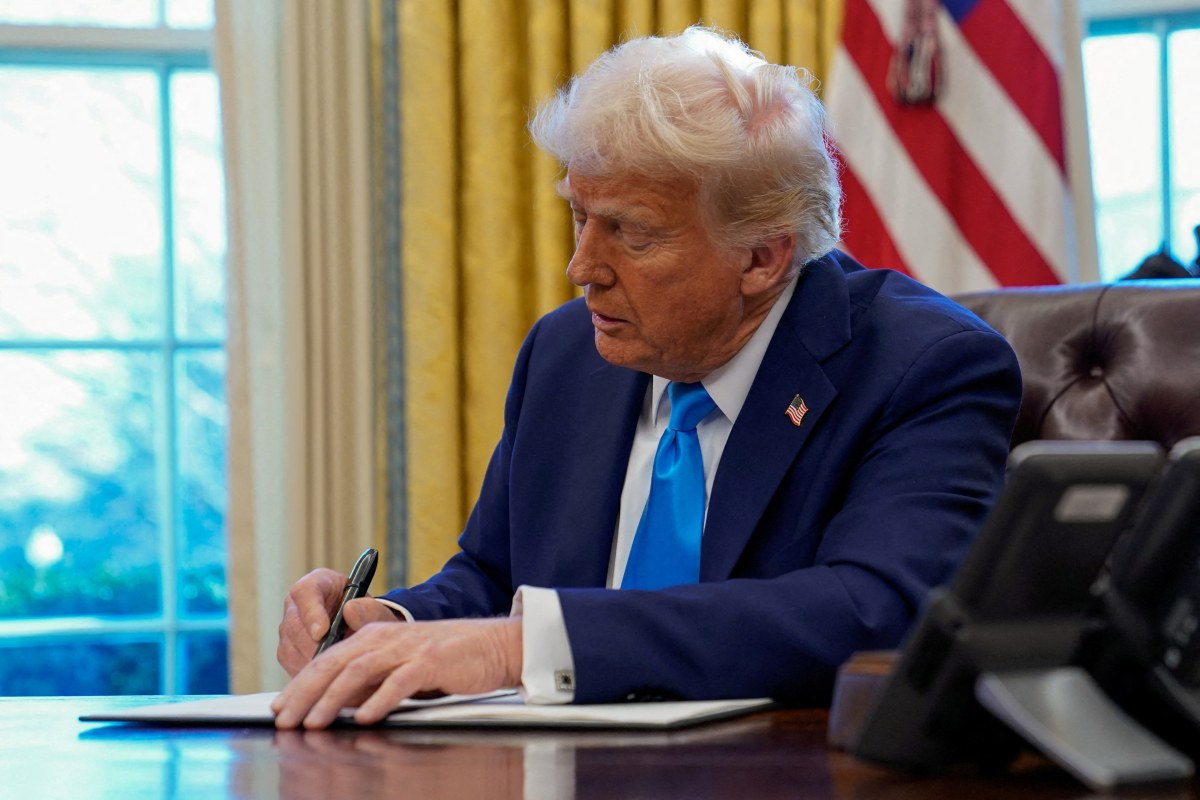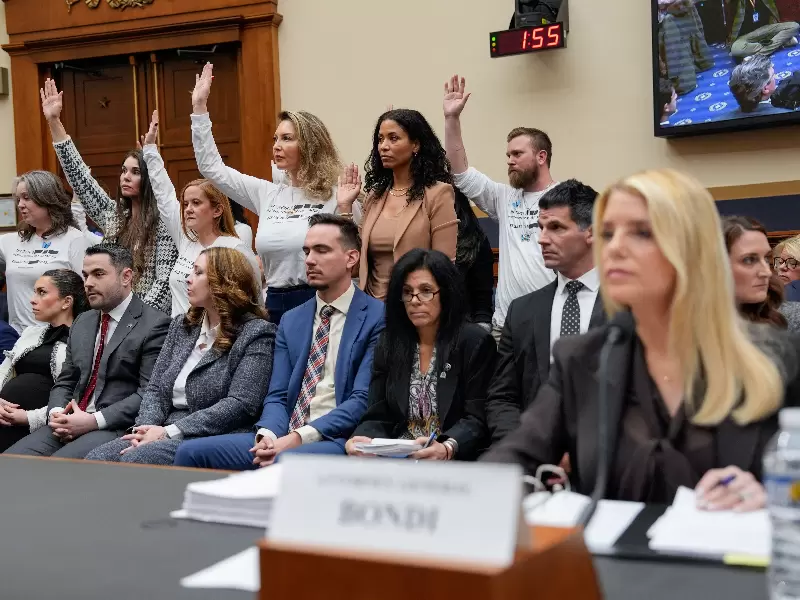Republicans sink Trump tax-cut bill after president calls for unity
Five of 21 Republicans on the panel voted to block the measure, saying they would continue to withhold support unless Speaker Mike Johnson agreed to further cuts to the Medicaid healthcare program
.JPG) The U.S. Capitol building is pictured at sunset on Capitol Hill in Washington, U.S., November 27, 2019. / REUTERS/Loren Elliott
The U.S. Capitol building is pictured at sunset on Capitol Hill in Washington, U.S., November 27, 2019. / REUTERS/Loren Elliott
U.S. President Donald Trump's sweeping tax bill failed to clear a key procedural hurdle on May 16, as hardline Republicans demanding deeper spending cuts blocked the measure in a rare political setback for the Republican president in Congress.
The vote in the House Budget Committee came despite Trump's call for Republicans to "UNITE behind" the legislation. "We don't need 'GRANDSTANDERS' in the Republican Party. STOP TALKING, AND GET IT DONE!" he said in a social media post.
Also Read: Trump turns to US Supreme Court to pursue mass federal layoffs
Five of 21 Republicans on the panel voted to block the measure, saying they would continue to withhold support unless Speaker Mike Johnson agreed to further cuts to the Medicaid healthcare program for lower-income Americans and the full repeal of green energy tax cuts implemented by Democrats.
As written, the bill would add trillions of dollars to the federal government's $36.2 trillion in debt over the next decade. In addition to extending the 2017 tax cuts that were Trump's signature first-term legislative achievement, it would eliminate taxes on some tips and overtime income, boost defense spending and provide more funds for Trump's border crackdown.
The budget committee later said that it would reconvene in person for a rare May 18 night 10 p.m. EDT session to reconsider the legislation. Approval would start the clock on a 72-hour waiting period before a measure could be considered on the floor, allowing a vote on passage to proceed late next week and meet Johnson's goal of passage before the May 26 Memorial Day holiday, according to a person familiar with the matter.
Representative Ralph Norman, one of the hardline conservatives who voted against the bill, defended his decision.
"This isn't a grandstand," the South Carolina Republican told reporters. "We'll compromise somewhere, but just not giving the farm."
May 16's defeat is likely a temporary setback for the measure in a Congress that is controlled by Trump's Republicans and so far has not rejected any of his legislative requests.
Republicans are divided between hardliners who view the package as their best chance to cut spending and more moderate Republicans from competitive districts, who have warned that deeper spending cuts to social safety net programs could jeopardize the 220-213 seat House Republican majority in the 2026 midterm elections.
House Budget Committee Chairman Jodey Arrington told lawmakers at the hearing that the legislation would deliver on a promise to voters who elected Trump and gave the party full control of Congress last November.
"I am confident we will get to a good place this weekend and have the votes to pass it out of Committee Sunday evening," the Texas Republican said in a statement following the vote.
'WRITING CHECKS WE CANNOT CASH'
Republican Representatives Norman, Chip Roy, Andrew Clyde, Josh Brecheen and Lloyd Smucker joined all 16 Democrats on the committee in voting against the measure.
"We are writing checks we cannot cash and our children are going to pay the price. So, I am a 'no' on this bill unless serious reforms are made," Roy, of Texas, told the committee.
The lawmakers said they hoped to reach a deal with Johnson to amend the bill over the weekend.
Roy, Norman, Clyde and Brecheen are members of the ultraconservative House Freedom Caucus, which later said in a social media post: "We are not going anywhere and we will continue to work through the weekend."
Smucker said his "no" vote, changed from an initial "yes," was a parliamentary maneuver meant to ensure the measure can be taken up again once Johnson has brokered an agreement.
Congress' bipartisan Joint Tax Committee estimates the tax cuts would cost $3.72 trillion over a decade. In a May 16 letter, the nonpartisan Congressional Budget Office confirmed that the tax package would not exceed a $4.5 trillion ceiling imposed by the budget committee.
Trump has highlighted measures including lifting taxes on tips and overtime that Republicans say would boost working-class Americans, while critics say the bill will offer more benefits to the wealthy.
The sweeping bill would also eliminate a tax on silencers for firearms.
Democrats condemned the legislation as a vehicle for giving billionaires tax cuts, while citing a projection from nonpartisan congressional researchers that proposed spending cuts to Medicaid and federally subsidized private health insurance available through the Affordable Care Act could lead to 8.6 million Americans losing health coverage.
"No other previous bill, no other previous law, no other previous event caused so many millions of Americans to lose their healthcare. Not even the Great Depression," said Representative Brendan Boyle, the committee's top Democrat.
The proposed legislation would impose work requirements on Medicaid beginning in 2029. Hardliners want those to begin immediately and have called for a sharp reduction in federal contributions to Medicaid benefits available to working-class people through the Affordable Care Act - an option vehemently opposed by Republican moderates.
ADVERTISEMENT
ADVERTISEMENT
E Paper
Video




 Reuters
Reuters.JPG)













Comments
Start the conversation
Become a member of New India Abroad to start commenting.
Sign Up Now
Already have an account? Login